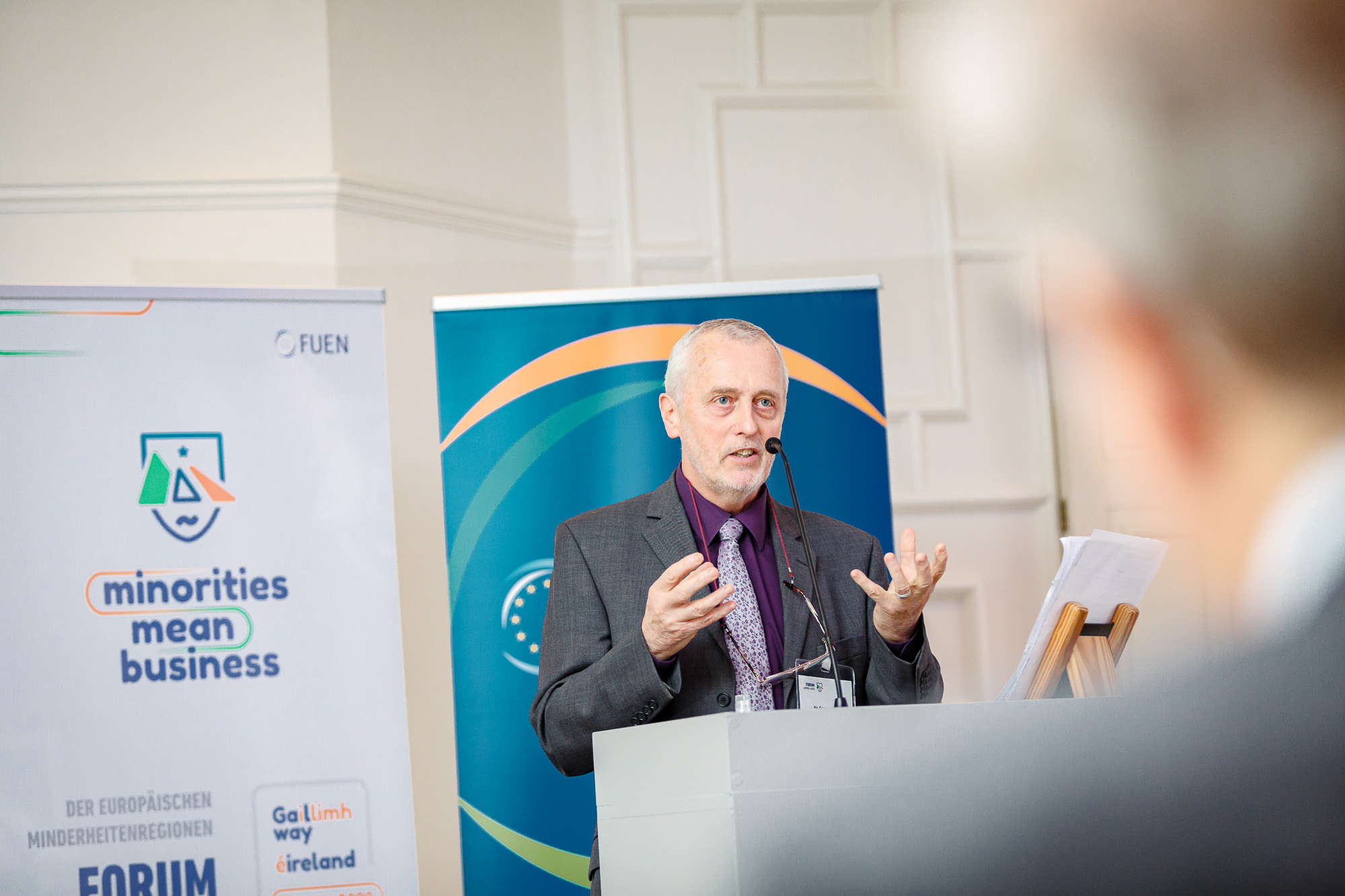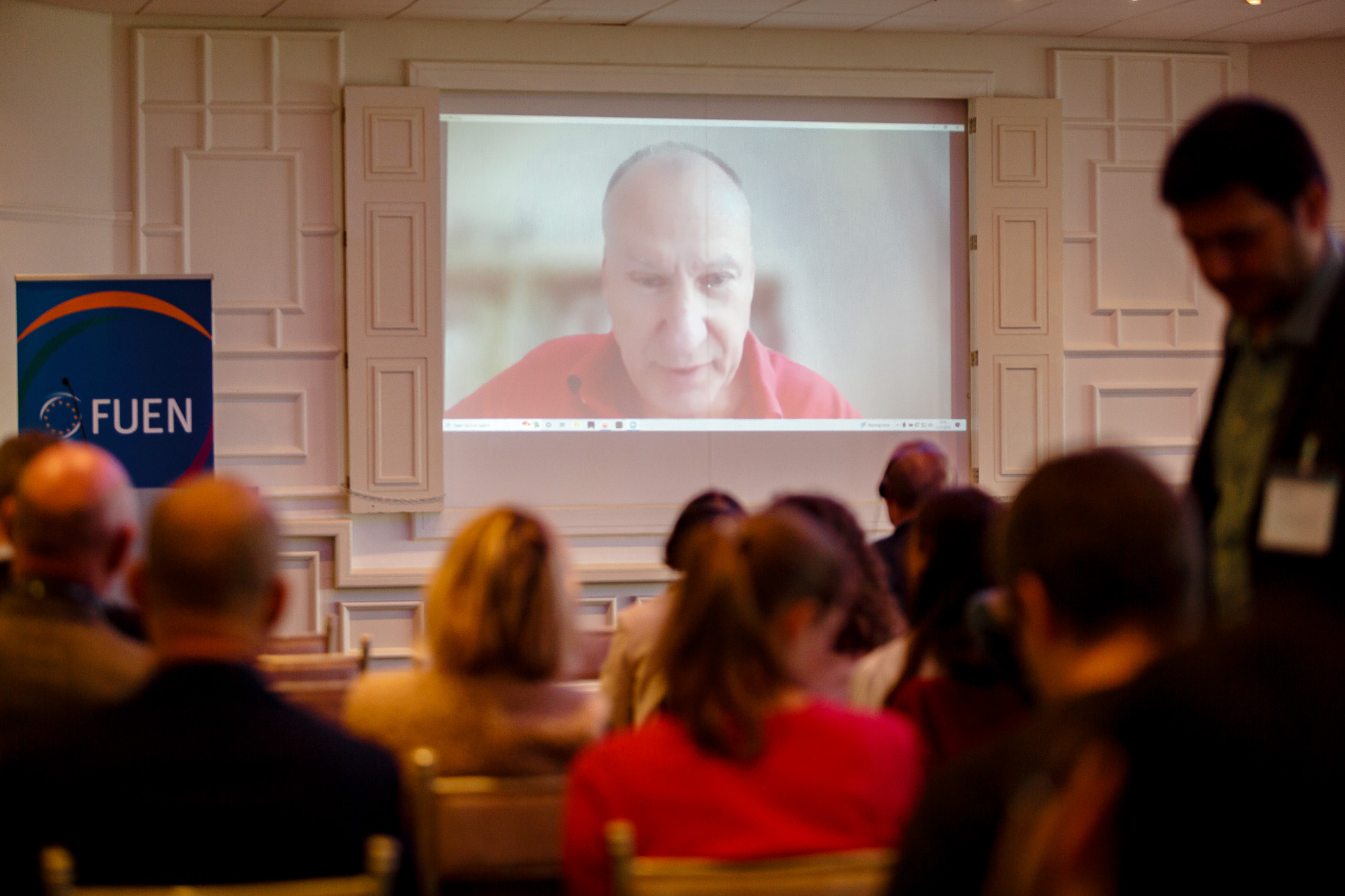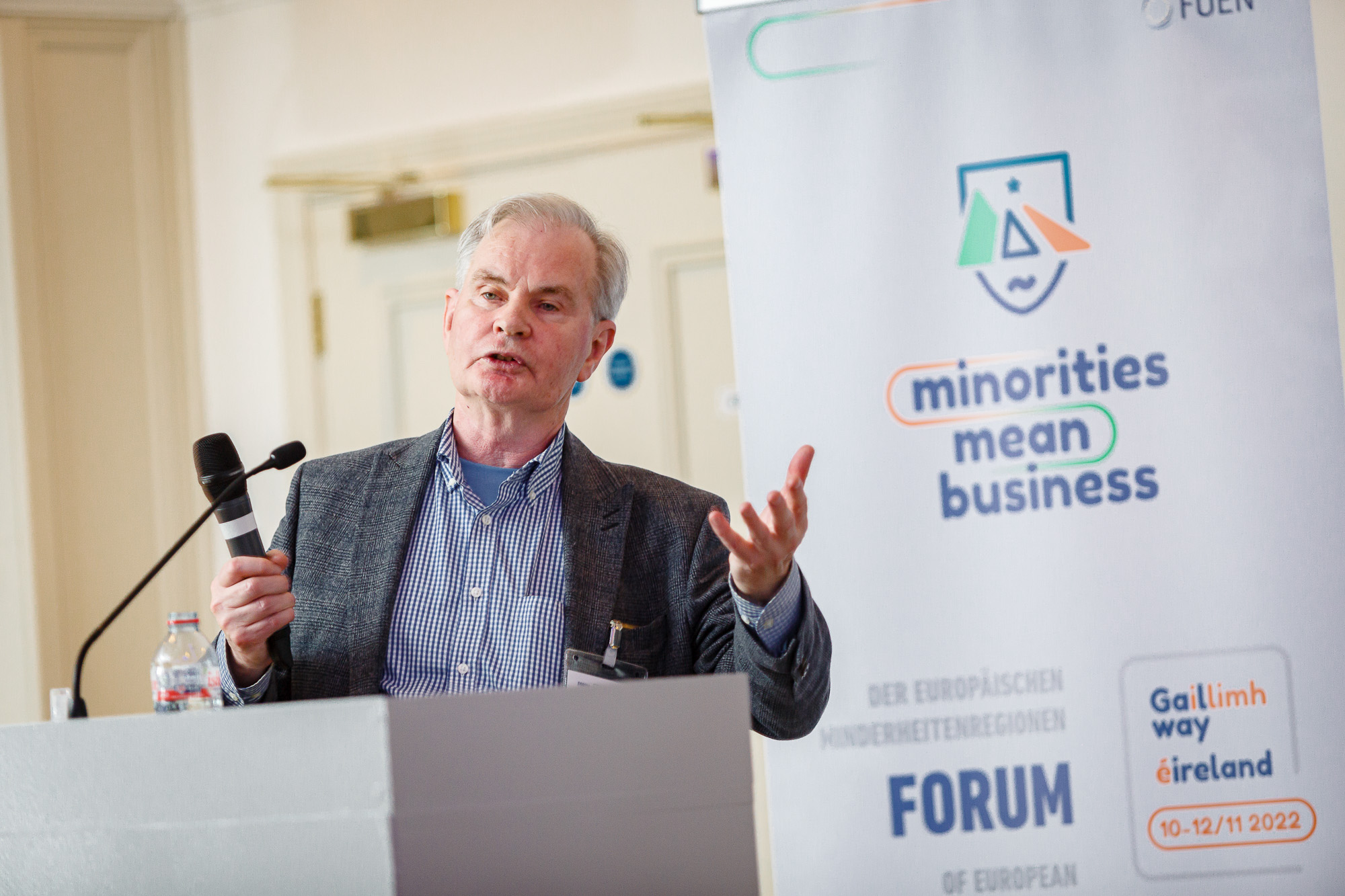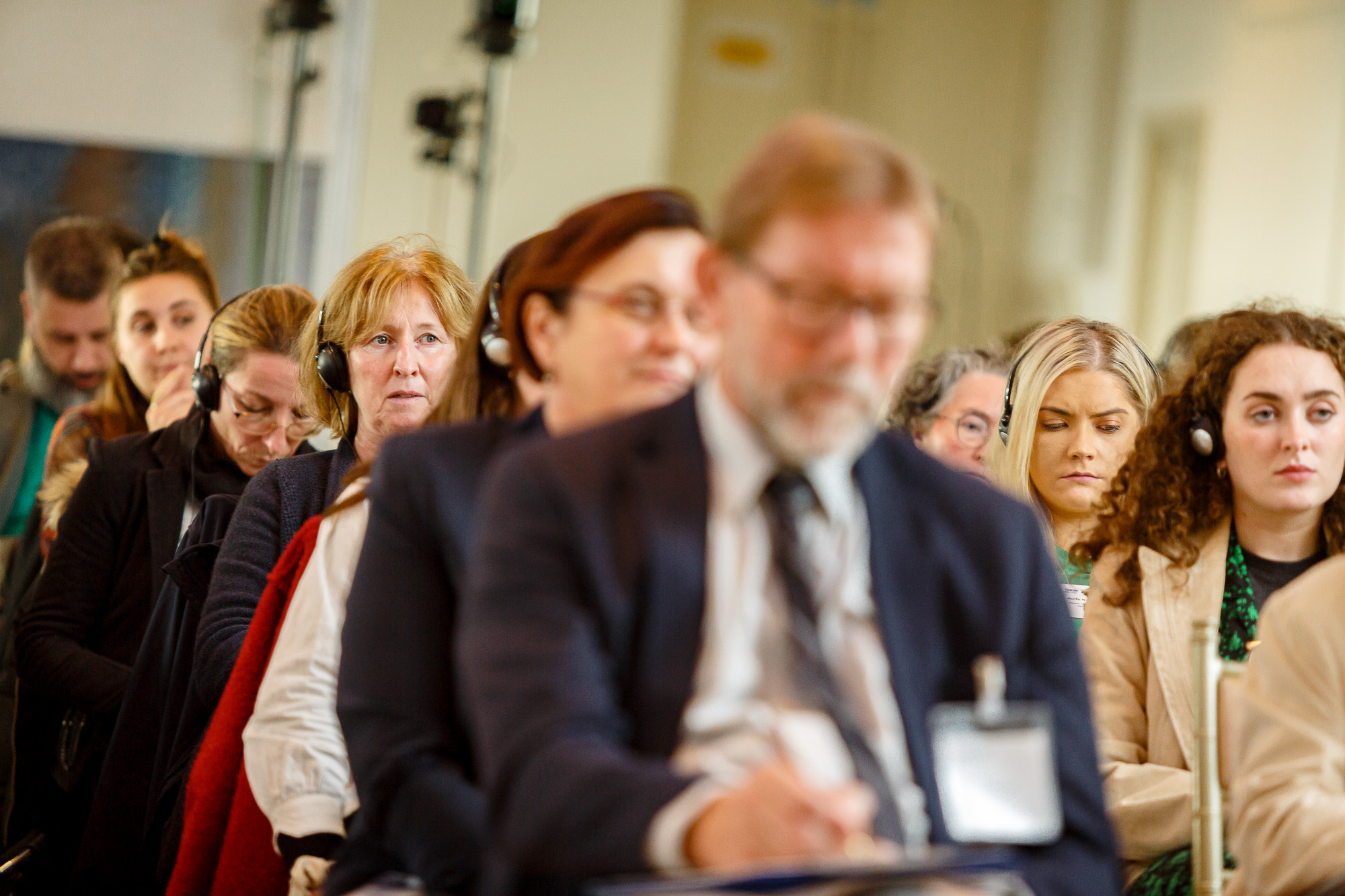
Communities between true cultural tourism and clumsy marketing gimmick
14.11.2022No minority region without a minority language; and no minority language without its home, the minority region. Language, culture and region are mutually dependent and thus keep each other alive – Ré Ó Laighléis (title image) made this clear in his emotional speech at the Forum of European Minority Regions in Galway, Ireland. The Irish writer, who gave the audience a delightful taste of his beloved mother tongue through his Irish-language talk, is tempted to be realistic and blunt about the situation: "Our language is getting weaker and weaker. Without new investment, it will not survive." With his talk, he opened the first panel on Friday, 11 November, "Economy and Tourism in Minority Regions", in which the speakers looked at the economic perspective of minority languages and cultures.
While Ré Ó Laighléis appealed to seek investors for the purpose of better language promotion, to enter into cooperation with companies by convincing them of the benefit of the unique language and culture, he warned at the same time that these could also be damaged in the process. The speakers themselves have to show in all possible situations how strongly they believe in the language and celebrate their commitment, before one can convince the business community to show the courage to invest.

A great opportunity for minority regions is the emerging cultural tourism, as Greg Richards, professor of place-making and events at the University of Breda, the Netherlands, explained in his online lecture. "What travellers want today are experiences, encounters with local people, atmosphere, immersion in other languages and discovering unique stories. Minority languages can open up a new culture to you," Richards explained. So-called language tourism is steadily increasing. This type of traveller does not stay in hotels, but with people from the region and thus immerses themselves much more intensively in culture and language. Studies show that this type of tourism can strengthen minority languages, but the potential dangers must also be considered: displacement by the "bigger" language and the risk of being reduced to a mere marketing gimmick.

Finbarr Bradley, Emeritus Professor of Finance at Dublin City University, opened his presentation with a startling graph of the decline of native Irish speakers in Ireland - but also offered hope by pointing to the general shift in the economy towards a more sustainable one. Today, he said, it is no longer just about growth and increasing production and demand, but also about doing something meaningful and having everyone's well-being in mind. "It's not the head that matters, it's the heart," Bradley said. That could benefit minority languages and cultures: Travellers are also looking for the special, the original, and the meaningful. It is about "creating real values", he said. "Home makes up who we are - you can't express that in numbers, but only with your heart."

The presentations were complemented by local case studies from various minority regions:
- Christoph Schmidt showed the field of tension in which the Frisian minority in Schleswig-Holstein, Germany, moves - old traditions are increasingly used as a tourism magnet, "overtourism" causes increasing conflicts especially on the popular North Sea islands Föhr, Sylt and Amrum. On the other hand, travellers and their spending provide financial security.
- Håkan Casares Berg, Observatorio da Cultura Galega, Consello da Cultura, gave insights into the tourism statistics of the Spanish region of Galicia, which is very culture-oriented there. "Highlighting the beauty of the region and its culture is financially rewarding," he explained.
- Òscar-Adrià Ibáñez, Head of linguistic rights and entreprises at Plataforma per la llengua talked about ways they use to promote the Catalan language through the Catalan cuisine and about their call to Catalan speakers to visit other regions in Europe where Catalan is spoken.
- Romedi Arquint, President of the federation Combienza, former president of FUEN and Lia Rumantscha in Switzerland said that many touristic organisations like to see the minorities like last Mohicans. In a situation when “we are being instrumentalized by external forces, we have to figure out how can we preserve our identity and create added value for ourselves”, he pointed out. One way is through art: the Romansch have many talented singer-songwriters worth supporting, and the older generation is called upon to do so.
- Eugenia Natsoulidou, who founded the Macedonian Educational and Cultural Movement in Greece, said that the Macedonian language is getting stronger. Macedonian dances and songs are a constant presence at village festivals and are liked by the young people. She also told a story about a sauce made famous by a Macedonian chef, which is now famous in the whole Greece.
- Meirion Prys Jones, former Chief Executive of the Welsh language board explained that in order for a language to survive it needs a positive image, high status, infrastructure and education – but the most important part is that people not only learn the language, but also use it. He presented the way in which the Welsh national football team embraced the language and started to promote it
Photo Credit: László Mihály/FUEN
A picture gallery of the Forum can be found here
SAJTÓKÖZLEMÉNYEK
- FUEN wishes you a peaceful Christmas season, restful days and a bright, hopeful start to the new year!
- FUEN calls on the EU to act over systematic ethnic-based land confiscations in Slovakia
- Women of Minorities conference in Budapest calls for structural change to ensure equal political participation of minority women
- FUEN President Olivia Schubert at UN Forum on Minority Issues in Geneva
- "Laboratory of Peace": 28th Seminar of Slavic Minorities held in European Capital of Culture Gorica/Gorizia
- Equality in Political Participation and Representation: Third “Women of Minorities” Conference to Be Held in Budapest
- FUEN Working Group on Education discusses challenges and future of minority schooling in Europe
- 28th Seminar of Slavic Minorities in Europe to take place in Gorica/Gorizia, Italy
- Olivia Schubert in her first interview as FUEN President
- FUEN Assembly of Delegates elects new leadership – Olivia Schubert becomes new President














